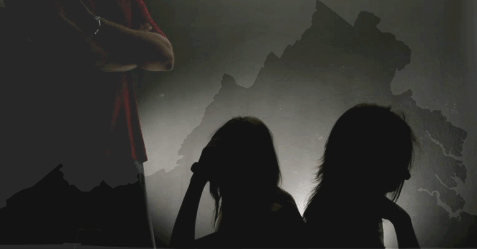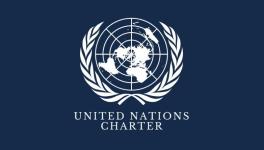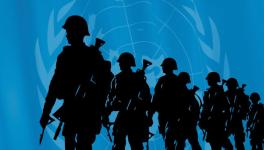Pass the Anti-Human Trafficking Bill: Survivors

Image Courtesy: The Virginia Free Citizen
Forty rescued members, who are survivors of either sex-trafficking, bonded labour or forced marriage, are in Delhi meeting the Members of Parliament seeking their support to enact the “Trafficking of Persons (Prevention, Protection and Rehabilitation) Bill, 2017”. They want to impress upon the lawmakers on the urgency of the bill. They are being led by Rashtriya Garima Abhiyan, a human rights collective.
The United Nations (UN) defines Human Trafficking "the recruitment, transport, transfer, harbouring or receipt of a person by such means as threat or use of force or other forms of coercion, abduction, fraud or deception for the purpose of exploitation."
“Human trafficking is a crime that exploits women, children and men for numerous purposes including forced labour and sex,” the UN correctly observes. It is estimated that 21 million people are trafficked every year. The National Crime Records Bureau (NCRB) states that more than 20,000 men, women, and children were rescued in India in the year 2016.
The survivors feel the bill is needed urgently as the Indian laws against trafficking are the Immoral Traffic (Prevention) Act (ITPA), 1956 and Section 370 of the Indian Penal Code (IPC). These only recognise trafficking with respect to sexual exploitation and do not criminalize trafficking for other purposes like beggary, surrogacy, organ-transplant and forced labour.
Also, there are no comprehensive rehabilitation schemes to help the victims who are rescued.
The government recently released a press note that gave hints to what is going to be in the proposed legislation. According to the note, the Bill would recognise different forms of trafficking – forced labour, sexual exploitation and forced marriage. And there would be comprehensive rehabilitation programme to safeguard the interests of the victims.
The bill proposed to have a National Anti-Trafficking Bureau that would address the cross-border trafficking issues and the National Investigation Agency (NIA) would monitor and investigate the cases.
There would be a three-tier institutional mechanism - District, State and Central Level - to deal with prevention, rehabilitation, investigation and protection with relation to trafficking.
Get the latest reports & analysis with people's perspective on Protests, movements & deep analytical videos, discussions of the current affairs in your Telegram app. Subscribe to NewsClick's Telegram channel & get Real-Time updates on stories, as they get published on our website.
























